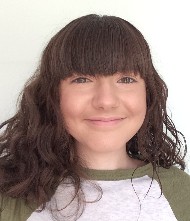Maddie explains how the Collective supports UCL's PhD Programme in Mental Health Science, the first of its kind in the UK, and how you can take part in research the students are conducting.
Co-production training for PhD students
I’m Maddie, a languages graduate and survivor of our current system of mental health services from the North of England. I was part of developing and delivering Co-Production Collective co-production training for students on the PhD in Mental Health Science course funded by the Wellcome Trust and based at UCL.

In October 2020, we began working with the first cohort of students (and have since started working with the second), delivering a series of workshops throughout their first year aimed at helping them to understand the benefits of involving people with lived experience in their research and what co-production involves. We covered themes including the values underpinning co-production, the importance of sharing power and responsibility, accessibility and how co-production can be implemented in practice.
We were blown away by how enthusiastic the students were about involving people with lived experience in their work and how insightful they were about the barriers that can prevent researchers in the field of mental health sciences from doing this well.
You can read more about the experiences of Humma Andleeb - one of the students on the PhD - in her blog about the co-production workshops. A big thank you also to other people involved in co-producing and delivering these training sessions to date - Beth, Dawn, Katherine, Mike, Nicc, and Sarah.
Get involved in PhD projects
Currently, the first cohort of students are beginning their main PhD projects and five of them are currently looking to recruit people with lived experience of mental health difficulties to sit on their thesis committees. The thesis committee lasts for the duration of their project (three years) and will typically meet six to ten times online throughout this period. The committee includes researchers, a mental health practitioner and people with lived experience and aims to support the student and their supervisor throughout the project. The roles will include reading reports written by the student and listening to them deliver oral presentations, providing feedback and support and approving meeting reports that will be entered into the student’s online Research Log.
There is payment available for each role, which is £25 per hour, and this will typically include up to one hour of preparation time for each of the meetings. In addition, there is £5 per meeting for internet costs and/or the course can supply dongles to help those without internet access. You do not have to claim these payments should you wish not to. The deadline for expressing interest in any of these roles is: 5pm on Monday 31 January 2022.
Poverty, Inequality, and Young People’s Mental Health Across Different Countries

Tom is particularly interested in adolescent mental health. We know that inequality and oppression can have a big impact on mental health, so his project will explore the impact of poverty on adolescent mental health and future outcomes in different countries around the world. He is looking for two young people aged between 16 and 25 with lived experience of mental health difficulties to join his Thesis Committee and contribute at all stages of the study.
🡆 Read more about this opportunity
Symptoms of Anxiety Disorders in the Brain and Mind

Carlos’ background is in clinical psychology and he is interested in how anxiety is experienced differently indifferent people. During his project he will investigate how anxiety disorders’ symptoms actually occur in the brain and mind and how psychological treatments might target them. He is looking to recruit people with lived experience to help with this study.
🡆 Read more about this opportunity
Exploring how migration in childhood and adolescence impacts on mental health problems

Humma is a lived experience mental health researcher, she is passionate about using a variety of methodologies to conduct mental health research.
During this project she will be using an existing dataset to look at whether there is an increased risk of psychosis for people who migrate at a younger age and also speaking to adults who migrated in childhood about their personal experiences. She is looking for someone with experience of mental health problems (ideally psychosis) and experience of migration to help with this project.
🡆 Read more about this opportunity
Identifying the Brain Processes Involved in Depressive Symptoms in People with Medical Illness

Karel is a junior doctor and his project will focus on identifying the brain processes underlying symptoms of depression in people whose depressive symptoms arise after medical illness, such as stroke, brain tumour and some other infectious, inflammatory and endocrine disorders. He is looking for people with lived experience of depression following medical illness to advise on the development of this project.
🡆 Read more about this opportunity
Understanding Depression by Focussing on its Individual Parts and How They Influence Each Other

Giulia’s background is in psychology, philosophy and cognitive neuroscience. Her project will attempt to think about depression in a slightly different way: as a series of symptoms connected to each other. With this in mind, Giulia would like to answer questions such as: what is depression? How is it treated? How is it passed on through generations? She is looking for people with lived experience to support her in this project.
🡆 Read more about this opportunity
More information
You can read more about each project and the corresponding roles for Thesis Committee members, as well as key dates in the summaries linked above. Do not hesitate to contact the students to discuss any access requirements you may have should you be selected for one of the Thesis Committee roles. If you require the summaries above in different formats please feel free to contact us at coproduction@ucl.ac.uk.
You can also find out more about students’ work on the PhD programme on the UCL blog.




.png)
.png)
.png)
.png)

.png)
.png)
.png)
.png)
